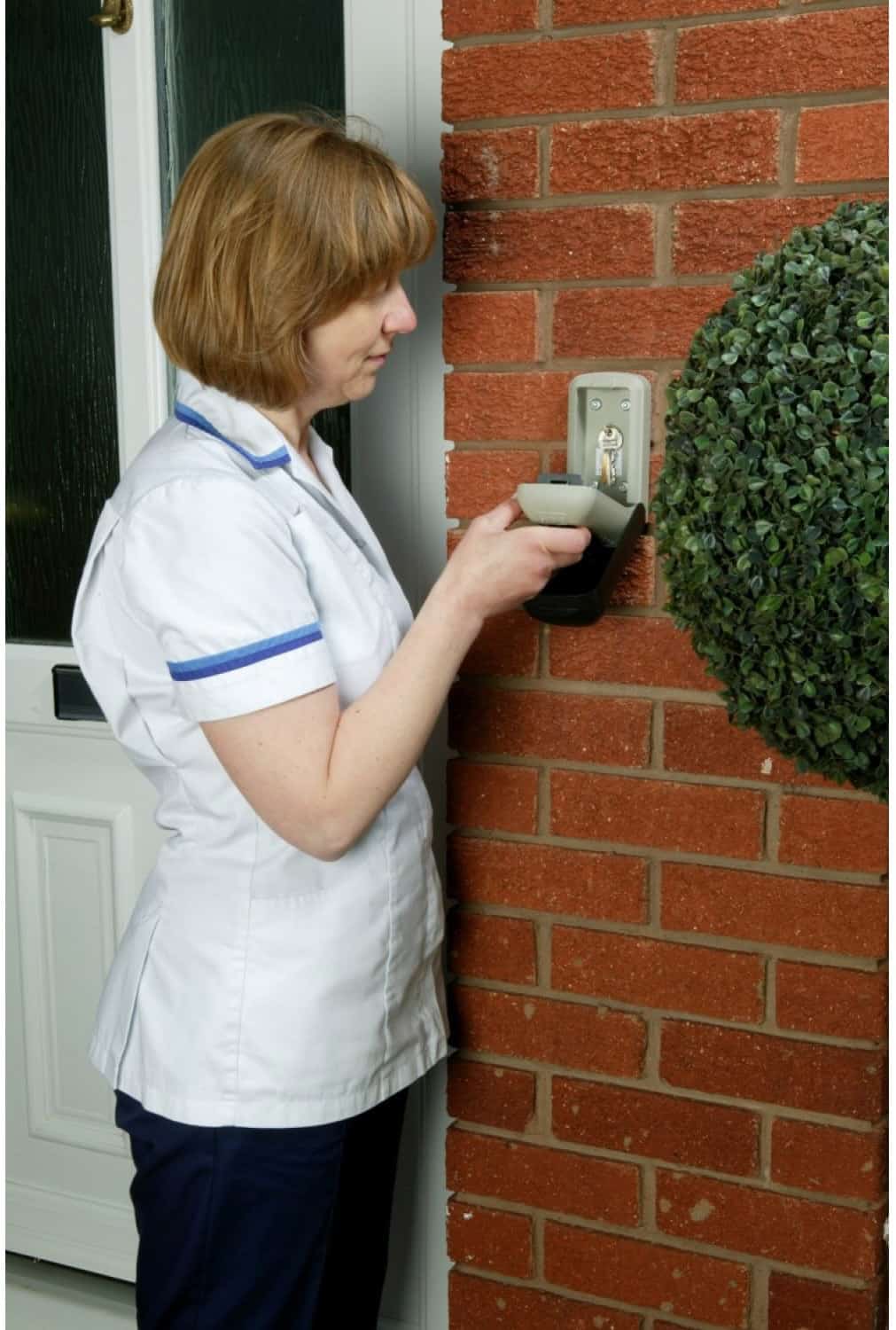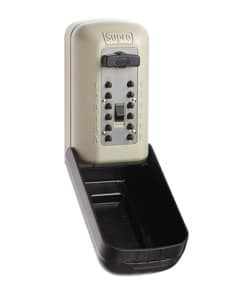Access solutions provider aims to be the key to safe care provision
 The issue of bed blocking is an increasingly common challenge within the NHS and across other care providers. Latest figures from the Health Service Journal show that August 2016 saw delayed discharge hit its highest monthly level since data was first collected six years ago, with some 6,448 patients delayed in total.
The issue of bed blocking is an increasingly common challenge within the NHS and across other care providers. Latest figures from the Health Service Journal show that August 2016 saw delayed discharge hit its highest monthly level since data was first collected six years ago, with some 6,448 patients delayed in total.
Latest statistics from the NHS have already shown that September 2016 had a 29% increase nationally as of the same period in 2015 and the serious impact of bed blocking for the NHS has been further highlighted by latest research from the Office of National Statistics, revealing that the minimum cost of delayed discharge is now totaling a minimum of £800m a year.
Delayed discharge is an issue impacting every region in the UK, not least the South West and Swindon in particular. The city is now one of the fastest growing in the UK, making the issue of providing comprehensive services a growing challenge for the Swindon Borough Council. The council recently announced plans to take back control of social work services as a result of a number of issues ranging from financial pressures and NHS policy changes. However, the biggest challenge for health and social service providers in the borough in recent years has been the issue of delayed discharge.
Recent figures from March 2016 have shown Swindon had a delayed discharge rate of 8.3 cases per 100,000, but despite this figure, Swindon is already making hugely positive steps to address the issues. Swindon Council, along with Bath, North East Somerset and Wiltshire, is one of 44 areas in the UK that have been tasked to produce a sustainability and transformation plan as part of NHS England’s five-year goal to release £22bn of efficiency savings by 2020. To do this, every health and care system in England will produce a multi-year plan showing how local services will evolve to become sustainable, ultimately delivering better health, better patient care, improved NHS efficiency and financial stability.
A vital key in the chain
 The reasons for bed blocking are extensive and varied, however, one of the recurring themes is the issue of accessibility for carers and other health professionals visiting patients in the community. Part of the process of a hospital discharge plan for crisis care requires a patient to have two nominated key holders who have access to the property if and when required. This raises a number of significant issues, with key holders not always available when needed, especially if access is required late at night.
The reasons for bed blocking are extensive and varied, however, one of the recurring themes is the issue of accessibility for carers and other health professionals visiting patients in the community. Part of the process of a hospital discharge plan for crisis care requires a patient to have two nominated key holders who have access to the property if and when required. This raises a number of significant issues, with key holders not always available when needed, especially if access is required late at night.
Homeline is an emergency services provider, originally established by Swindon Borough Council in 1987 to promote and implement services which enable independent living within the community for both the elderly and vulnerable. Operated by a team of response officers, they provide a 24 hour, 365 days a year service. The business is tasked with providing services against a backdrop of reduced council funding, combined with a significant rise in the percentage of individuals requiring adult social care services.
The perfect fit
The Key Safe Company was established in 1995 and is a distributor of secure home access solutions. Key Safes are strong mechanical metal boxes that securely store a spare key inside and provide a convenient way for authorised visitors to enter a property. It eliminates the need to leave keys under doormats, issue multiple sets of keys and allows immediate access to emergency services and care workers. Solutions range from temporary key safes to the police approved permanent Supra C500 KeySafe.
The vast scope of potential users of key safe products means the range is proving to be popular across a number of sectors, with adult social care services seeing a particular advantage. The relationship between The Key Safe Company and Homeline was established more than a decade ago after Homeline recognised the contribution the products made to its own services.
The Key Safe Company was recommended as the preferred provider of choice and as a result, Homeline began to expand the scope of products it acquired from The Key Safe Company, utilising the portable Key Safe in large numbers as its work with discharge teams expanded. Increasing the range and volume of Key Safe products has allowed Homeline to provide care teams with unique, cost-effective solutions, providing real tangible benefits for patient care in the community.
 Commenting on Homeline’s initial decision to partner with The Key Safe Company, Jack Sharp, Principal Homeline & Telecare Officer at Swindon Borough Council commented: “It became clear we needed to invest in the best possible solution, providing us with the ability to empower our team to successfully manage the issues faced by our existing and future service users.”
Commenting on Homeline’s initial decision to partner with The Key Safe Company, Jack Sharp, Principal Homeline & Telecare Officer at Swindon Borough Council commented: “It became clear we needed to invest in the best possible solution, providing us with the ability to empower our team to successfully manage the issues faced by our existing and future service users.”
As part of a discharge plan, carers will typically visit patients for six weeks after discharge and access to patients with restricted mobility or other serious impairments is vital. In this instance, Homeline will be contacted by occupational health teams to go out and install the Key Safe, ensuring the discharge can take place without delay, getting patients back into their own homes when needed.
Speaking about the benefits for service users and the positive impact on delayed discharge for the NHS, Jack continued: “Key Safe is a far more viable option than other alternatives because we know that access can be maintained 24/7, giving peace of mind to patients and providing a vital advantage to already stretched service providers. The typical cost of providing and installing a Key Safe is £85, with provision and installation, supplied by Homeline, we can ensure rapid and cost effective access solutions are provided without delay.”
Looking into the future of delayed discharge, the impact caused by the rise in dementia is likely to have an increasingly serious impact upon care provisions. It is already the number one factor the team at Homeline is witnessing amongst its service users, with an expectation that this is going to rapidly increase. This prediction has sadly been recently confirmed by the Office of National Statistics, reporting that dementia, including Alzheimer’s disease, has now overtaken heart disease as the leading cause of death in England and Wales.
Helping patients to remain in their own homes for as long as possible, whilst ensuring they remain safe, will progressively become the top priority for healthcare providers. Key Safe products and other access related provisions are vital commodities in helping to achieve this.
Education is key
Homeline sees education as a vital component to encouraging health providers and end users to utilise the Key Safe solutions, in order to address the issue of delayed discharge and other care issues. Homeline actively promotes the use of Key Safe products, speaking regularly to vulnerable groups directly as well as clinical teams in order to educate them about the benefits.
Jack commented: “At Homeline, we are always proactive in promoting and utilising new technologies which enhance the services we provide. With referrals always coming from the discharge team from a health point of view, it is crucial that key workers are fully aware of options available to enhance care provision.
“We deal with some major injuries and serious issues and as a result, time is critical. Access to a property is vital which is why the company first explored the option of Key Safes.”

